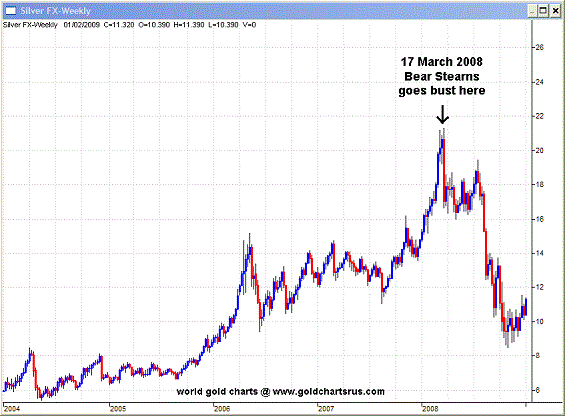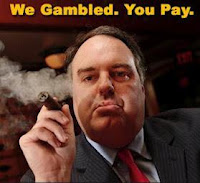I think that Rickards is correct in his judgement, and joins many others including Kyle Bass, who because of their backgrounds are much harder to ridicule and dismiss by the creatures of the bullion banks. And in some of their more recent remarks about this, one can almost feel the desperation. And here and there, the rats seem to be leaving the ship.
When this pyramiding of bullion and price manipulation falls apart, which history suggests that it must, there will be many angry investors demanding explanations of officials and regulators and bankers who will be shuffling from one foot to another, trying to excuse their lack of good fiduciary judgement and responsibility.
I just wonder if they will try to wait for some 'big event' to disclose this, in the hopes that fewer questions will be asked, and will be more easily dismissed.
As Rickards notes, and again I think he is right, they will 'close the gold trading window' and force settlements for cash at one price, and then reopen the price for actual bullion at a price that will climb shockingly higher, despite a determined PR campaign by their friends in the media.
Perhaps I am wrong about this, but to me it has seemed for some time to be all too similar to the improbable sustainability of the Madoff scheme, and other such arrangements that depend on large numbers of people accepting a proposition that is dangerously misconstructed, misrepresented, and therefore mispriced in terms of risks.
"If JP Morgan leases gold from the US Treasury it does not mean that they back up a truck in Fort Knox and drive the gold away. There is no need for that. It is just a paper transaction. The gold can sit in Fort Knox. JP Morgan can take a hypothecatable title. Now once JP Morgan has the gold what they do is they sell it at times 100 to gold investors who think they have gold but what they really have is what is called unallocated gold.
Unallocated gold is a euphemism for no gold. If I call up JP Morgan and I say, 'You know I wanna buy a million dollars worth of gold,' they will say, 'Fine. Here is our contract. Send us the million dollars.' I sign the contract. I send the million dollars. They send me a confirmation and it says I own a million dollars worth of gold subject to the contract.
Well, read the fine print in the contract. What it says is your gold is unallocated which means that they do not claim to have any specific bar with a serial number or your name on it. In reality they have taken the same bar of gold and sold it to a hundred different investors.
Now that is fine if we are happy with the paper contract, but if all 100 of us show up at JP Morgan and they have only got one bar of gold, the first person may get the gold. The other 99 people, they are going get their contracts terminated. They are going to get a check for the value of gold at the close of business yesterday, but they are not going to get today's price movement or tomorrow's price movement when super spiking going up to $2,000, $3,000, $4,000 an ounce. That is when you want your gold for the price protection when everything else is falling apart. That is when you are going to discover that you do not have gold."
Read the entire interview with Jim Rickards here.
Very unlikely you say? Do you remember what happend to those who were holding their bullion in these warehouses through MF Global? And this was a relatively isolated event. A more general break in the chain of cross ownership and counterparty risks at 100 to 1 leverage would create a market dislocation that would be quite memorable.
And as a reminder, here is what Kyle Bass had to say about unallocated and hypothecated gold, even that held within a 'fractional reserve' exchange structure.



































